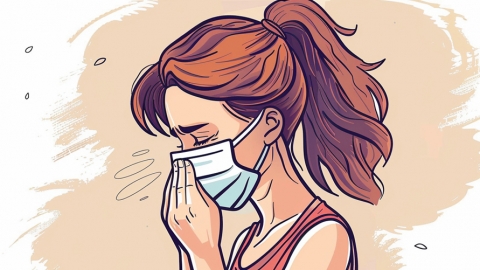How is pertussis-like condition treated?
Pertussis-like symptoms may be caused by incomplete immune function in infants and young children, tender respiratory mucosa, adenovirus infection, parapertussis bacillus infection, Mycoplasma pneumoniae infection, and other factors. It can usually be treated through general treatment, medication, and other methods. If any abnormalities occur, prompt medical attention is recommended. Detailed analysis is as follows:

1. Incomplete immune function in infants and young children: The immune system of infants and young children has not fully developed, making them more susceptible to pathogens and prone to develop pertussis-like symptoms. It is recommended to vaccinate on schedule, enhance immunity, and avoid exposure to infection sources.
2. Tender respiratory mucosa: The respiratory mucosa of infants and young children is delicate and prone to inflammatory reactions after pathogen invasion, leading to pertussis-like symptoms. Indoor air should be kept fresh, exposure to smoke and dust should be avoided, and respiratory mucosal damage should be minimized.
3. Adenovirus infection: Adenoviruses invade the respiratory tract, causing mucosal inflammation, resulting in paroxysmal spasmodic cough similar to pertussis, often accompanied by fever, sore throat, runny nose, and other symptoms. Patients can take medications such as ribavirin injection, ganciclovir injection, and pediatric cough-relieving asthma formula granules as directed by a physician.
4. Parapertussis bacillus infection: Infection of the respiratory tract by parapertussis bacillus causes symptoms similar to pertussis,表现为痉挛性咳嗽、鸡鸣样吼声,症状较百日咳轻。在医生指导下使用红霉素肠溶片、阿奇霉素干混悬剂、克拉霉素颗粒等治疗。
5. Mycoplasma pneumoniae infection: After infection, Mycoplasma pneumoniae damages the respiratory mucosa, causing paroxysmal cough that worsens at night, resembling pertussis, often accompanied by symptoms such as fever and fatigue. Treatment may include medications like azithromycin injection, roxithromycin dispersible tablets, and doxycycline hydrochloride tablets as advised by a doctor.
In daily life, attention should be paid to personal hygiene, frequent handwashing, avoiding crowded places, timely vaccination against pertussis to reduce infection risk. If coughing severely affects breathing or poses a risk of suffocation, immediate medical attention should be sought.










